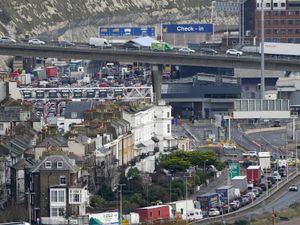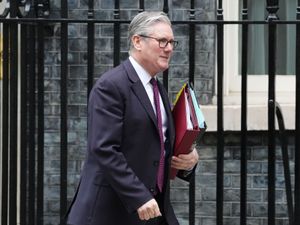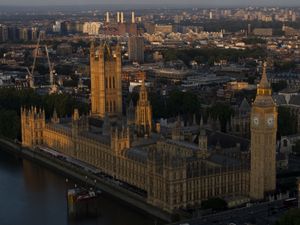Public backs nurses striking over pay and patient care, poll suggests
The Royal College of Nursing (RCN) has called for ‘detailed negotiations’ on pay in the next five days or it will announce strike dates for December.
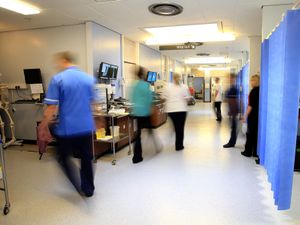
More than seven in 10 people say it is acceptable for nurses to go on strike over pay and better patient care, according to a new poll.
The Ipsos survey for the PA news agency found 74% of British adults felt it was acceptable for nurses to strike for better patient care, while 71% said it was acceptable for them to take industrial action for a pay rise.
Only 13% of people polled said it was unacceptable for nurses to strike for better standards of care, while 16% said it was unacceptable for a pay increase.
Around one in 10 remained neutral on the issue.
But the survey of 1,083 adults found that 47% of people felt the level of pay rise nursing unions are asking for was too high, compared to 38% who thought it was about right and 9% who said it was too low.
Younger people were more likely to say the figure was about right than those who were aged 55 and over.
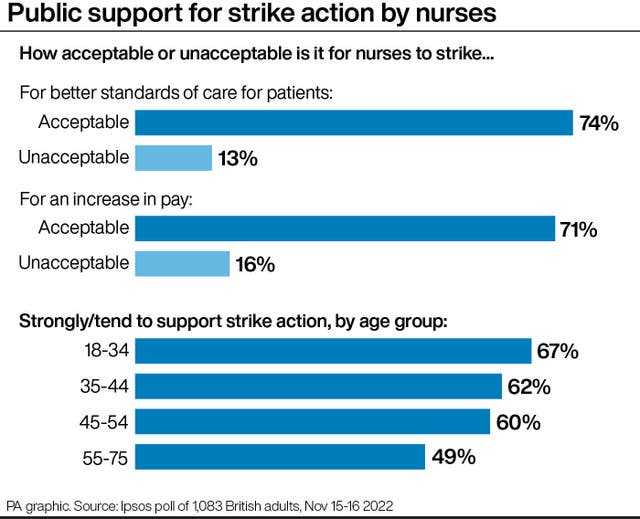
The Ipsos poll showed that older people and Conservative voters were most likely to say that the pay rise the RCN is asking for is too high, with 57% of 55 to 75 year olds and 64% of Tory voters saying this.
This compares to 37% of Labour voters and 38% of 18 to 34-year-olds who said the union’s pay demands were too high. Almost half of Labour voters thought the pay demands were at the right level.
The new figures come after the Royal College of Nursing (RCN) announced last week that nursing staff at the majority of NHS employers across the UK had voted to take strike action over pay and patient safety.
Overall, 59% of people surveyed said they strongly supported or tended to support the planned strikes by nurses, while 14% neither opposed or supported them and 24% opposed them.
Support was strongest among younger adults, with 67% of 18 to 34-year-olds broadly supporting strikes, dropping in every age bracket down to 49% of those aged 55 to 75.
Three quarters of people who voted Labour in the 2019 election (75%) strongly or tended to support the nursing strikes, compared to 45% of Conservative voters, the poll found.
The RCN is calling for a pay rise of 5% above inflation, saying that despite a pay rise earlier this year, experienced nurses were worse off by 20% due to successive below-inflation awards since 2010.
It has called for “detailed negotiations” on pay in the next five days or it will announce strike dates for December.
Pat Cullen, the RCN’s chief executive, said: “The public can see that nurses are the voice of patients in this dispute. Decent treatment of nursing staff – fair pay and safe working conditions – is integral to safe and high quality care of patients.
“The Health Secretary has until next week to open formal, detailed negotiations on pay and patient safety or we will announce our first strike dates and locations in December.
“Nursing has had enough – enough of a financial knife-edge at home and a raw deal at work. They won’t stand idly by when their patients are put at risk by low pay and staff shortages.
“Across the country, politicians have the power to stop strike action, but their time to do this is running out fast.”
Unison is also currently balloting over 300,000 of its members on industrial action, with voting closing Nov 25.
Health and Social Care Secretary Steve Barclay said: “We are all hugely grateful for the hard work and dedication of healthcare staff, including nurses, and we have prioritised the NHS in the autumn statement with an additional £6.6 billion over the next two years, alongside a commitment to publish a comprehensive workforce strategy next year with independently verified forecasts.
“We deeply regret some union members have voted for industrial action.
“These are challenging times, which is why we accepted the recommendations of the independent NHS Pay Review Body in full and have given over one million NHS workers a pay rise of at least £1,400 this year.
“This is on top of a 3% pay increase last year when public sector pay was frozen and wider government support with the cost of living.
“Our priority is keeping patients safe during any strikes. The NHS has tried and tested plans in place to minimise disruption and ensure emergency services continue to operate.”
Miriam Deakin, director of policy and strategy at NHS Providers, said: “Trust leaders have been planning for industrial action and are focused on maintaining patient safety during strikes as well as the wellbeing of all their staff.
“Trust leaders do understand why many nurses have voted to take strike action. This polling shows the public understands too: below-inflation pay awards amid the rising cost of living, severe staff shortages and ever-increasing workloads have all taken their toll.
“We strongly urge both parties in these talks to come together and reach agreement – avoiding prolonged industrial action.”

